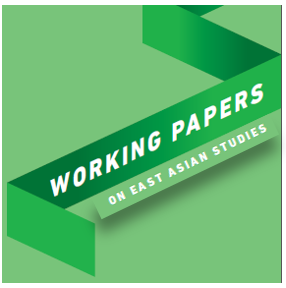Civil Societies’ Reactions of East- and Southeast Asian Countries to the Russian War on Ukraine : Preliminary Observations
Undoubtedly, the war in Ukraine has far-reaching political and economic implications for many regionsof the world, including East and Southeast Asia. The governments’ reactions to the war have variedconsiderably ranging from fully supporting Ukraine in alliance with the United States and the Europe-an Union, as Japan and Korea have done, to the full backing of Russia by North Korea and Myanmar.That said, many governments in Southeast Asia remain neutral. Nonetheless, the responses to thewar in the public spheres neither necessarily agree with their respective governments’ stances, norare they expected to be homogenous.
This collection of articles serves as a preliminary attempt to take stock of the reactions of selectedcivil societies in East and Southeast Asian countries to Russia’s invasion of Ukraine in February 2022by analyzing the respective countries’ public sentiment through press and social media. While the re-actions of the publics of East and Southeast Asian societies have no direct influence on global society,they will shape their governments’ future courses, where they can be expressed and where electionsare held. As the long-term consequences of the geopolitical and economic shifts initiated by this con-flict will only slowly become fully discernible, their analysis is of great interest.
The papers have been presented and discussed at an online workshop jointly organized by the Insti-tute of East Asian Studies at the University of Duisburg-Essen (IN-EAST), the German Institute of Jap-anese Studies, Tokyo (DIJ), the Chair of Transregional Southeast Asian Studies at Humboldt UniversityBerlin, and the Faculty of Political Science, Chulalongkorn University, Bangkok.
This collection of articles serves as a preliminary attempt to take stock of the reactions of selectedcivil societies in East and Southeast Asian countries to Russia’s invasion of Ukraine in February 2022by analyzing the respective countries’ public sentiment through press and social media. While the re-actions of the publics of East and Southeast Asian societies have no direct influence on global society,they will shape their governments’ future courses, where they can be expressed and where electionsare held. As the long-term consequences of the geopolitical and economic shifts initiated by this con-flict will only slowly become fully discernible, their analysis is of great interest.
The papers have been presented and discussed at an online workshop jointly organized by the Insti-tute of East Asian Studies at the University of Duisburg-Essen (IN-EAST), the German Institute of Jap-anese Studies, Tokyo (DIJ), the Chair of Transregional Southeast Asian Studies at Humboldt UniversityBerlin, and the Faculty of Political Science, Chulalongkorn University, Bangkok.
Vorschau

Zitieren
Zitierform:
Malitz, David M./Sriyai, Surachanee (Hg.) (2022): Civil Societies’ Reactions of East- and Southeast Asian Countries to the Russian War on Ukraine: Preliminary Observations. In: Working Papers on East Asian Studies. Online unter: https://nbn-resolving.org/urn:nbn:de:hbz:465-20220906-102925-2.
Zitierform konnte nicht geladen werden.
